PANTHEON: a game about being the best god
Posted on January 16th, 2018
Looking for a new board game to play? Look no further than PANTHEON, a competitive deck-building board game about being the best god you can be! Compete for followers, accrue faith, and take down your opponents in deific fashion.
Pantheon is a game I helped to make with Morgan Mayback for Brandeis's Fantasy Worlds English class. For the final project (making a fantasy world), we worked on creating a tabletop game featuring a rich pantheon of gods all vying for control over the land. Morgan worked on the story and god designs for the game, and I worked on the rulebook and game design.
Designing the Rules
The rules of Pantheon are loosely based on other tabletop strategy games such as Dominion and Settlers of Catan. There is a central board where players can move their player pawn throughout the world and discover different events and buildings within that world.
When designing the rules, I wanted to look at a couple of different things:
- Multiple paths to victory -- Players can attempt different approaches to the game and have a chance of winning when playing strategically, for instance buying buildings versus buying followers early on
- Balance of Events and Buildings -- I wanted to make sure that the cards revealed to the players were properly balanced, with different numbers of cards (and more Event cards than Building cards) based on the accumulation of player wealth in the game
- Player balance and competition -- I wanted to ensure one player couldn't pull ahead of others and make it impossible for other players to achieve victory early and mid-game
- Meaningful differences between cards -- While making sure that no cards were underpowered or overpowered, I wanted there to still be meaningful differences in the cards that could be acquired, especially in terms of different strategies and how cards interact with one another
- Tweaking different variables -- the deck size and composition, number and location of players, and layout of the board all had an impact on the overall balance of the game
tl;dr -- the challenges were keeping things somewhat randomized but also meaningful; allowing all players to succeed while still rewarding good play
Creating the Game
To begin with, for rudimentary testing, I created a basic paper prototype out of paper and playing cards:
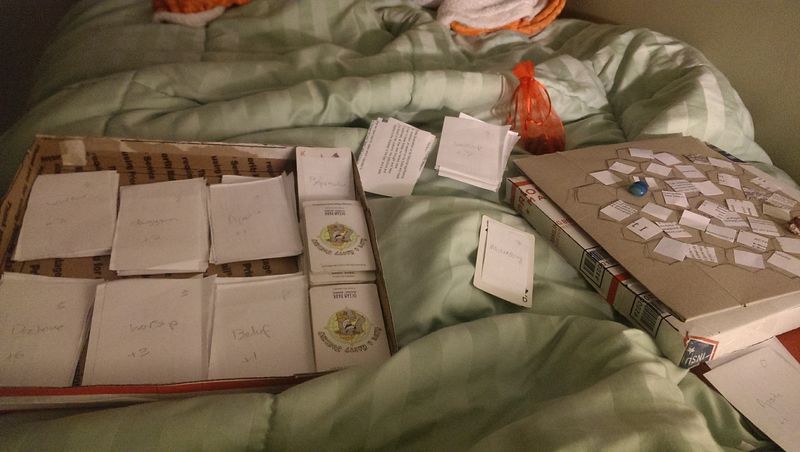
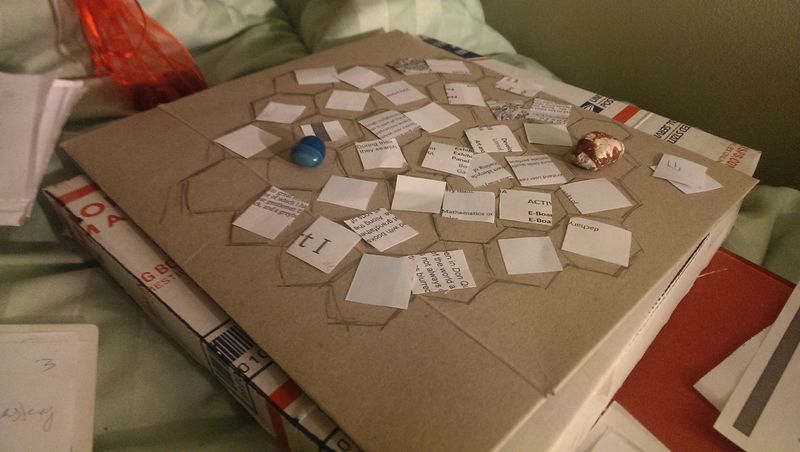
In order to make a playable version of the game, we had to create all the different game components. We created the board out of laser cut wood (with laser-etched tiles). Cards were printed out of cardstock and cut by hand; I made the original templates in Photoshop and generated PDFs for printing. Player tokens were 3D printed PLA, and the box was a repurposed shipping box covered with duct tape and then an illustrated map. Some pics below:
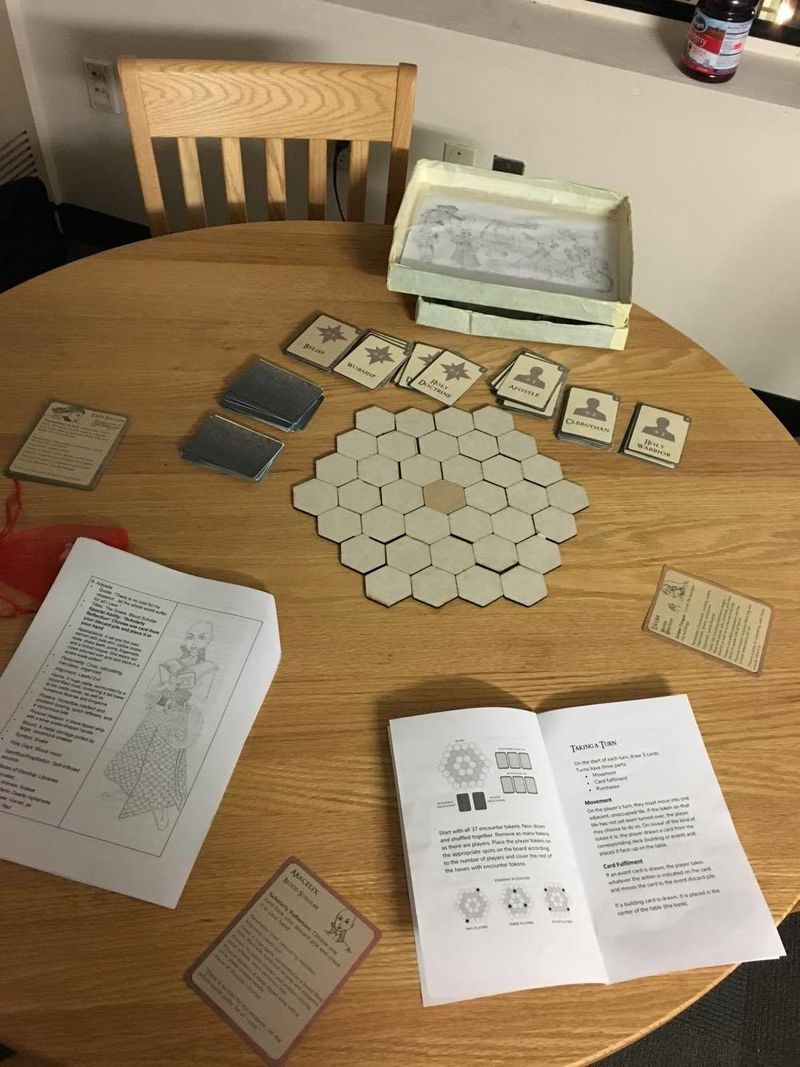
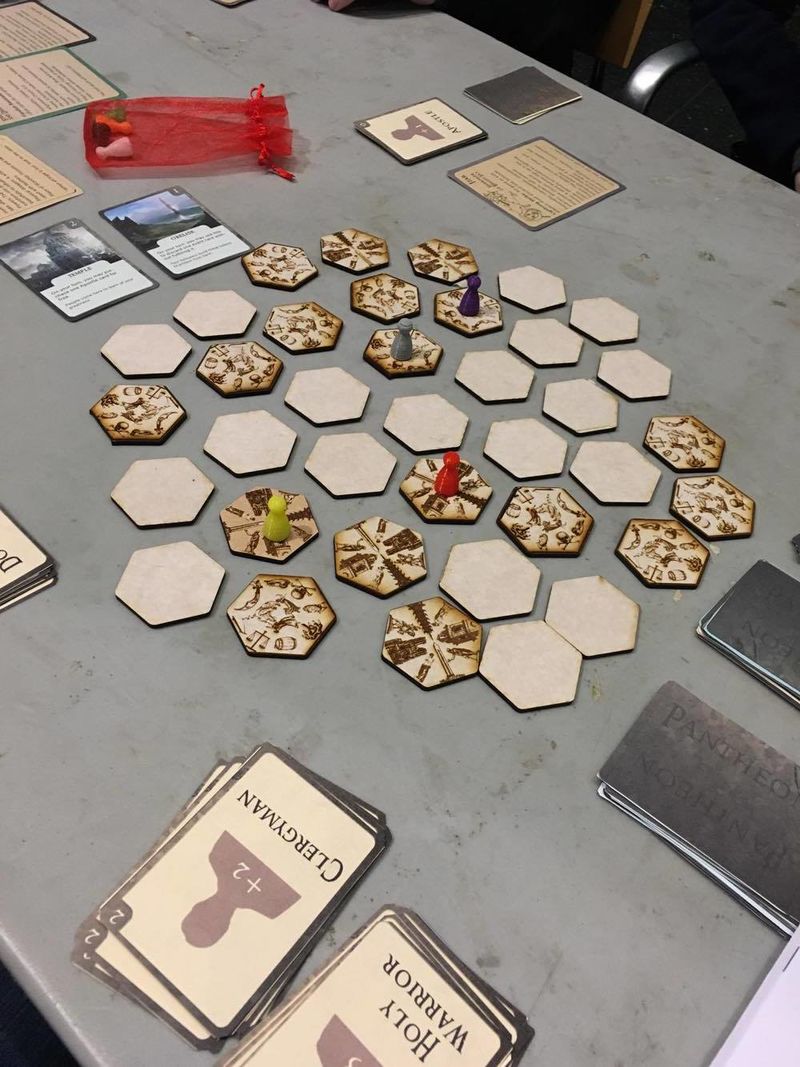
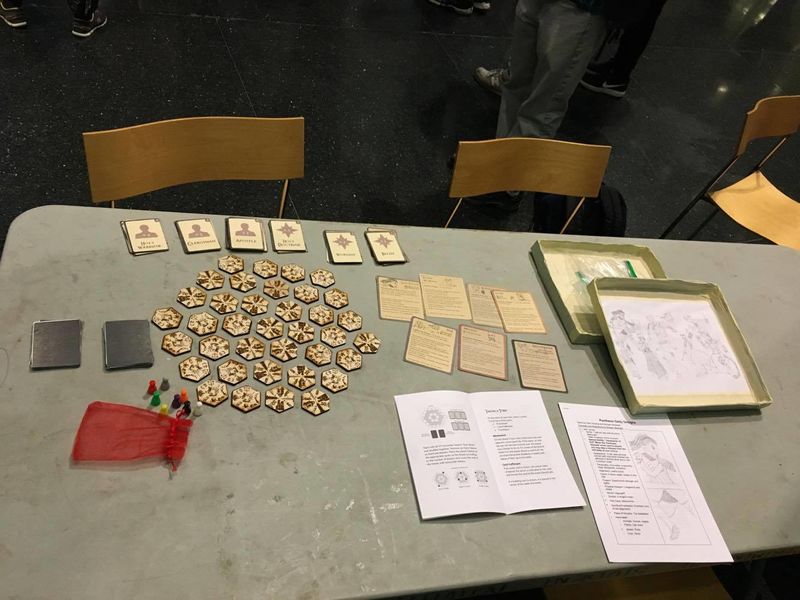
NOTE: Building and Event card artwork is not our original work and we own no rights to it. It is merely there as a placeholder.
Feedback, Beta-Testing, and Post-Mortem
We presented the game during a showcase night of all the Fantasy Worlds projects and others got to try out the game for the first time. Elements of the game still need work, especially in terms of balancing the different abilities of the gods and randomized events. All in all, though, it was fun to work on and produce this great beta version!
Want to play the game, remix it, or just check out more details? You can get all the materials you need to play here: Fantasy Worlds
